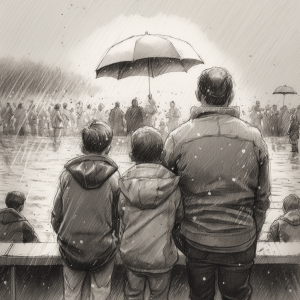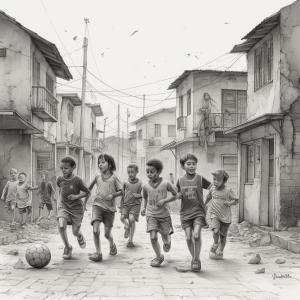When children feel good about themselves they are able to be happy and live in a world full of positive energy. In this state the child has the ability to feel connected to everyone and everything. In order to create a positive self-image the child must develop confidence that will allow your child or players to accomplish tasks, attain goals and be successful. Confidence is an extremely important part of Soccer and the most neglected by youth coaches.
A player that lacks confidence cannot play to his fullest potential. Even the greats and professionals of the game can lack confidence and its something that is addressed by sports psychologists. At a junior level it is very rare that you will be given an opportunity to work with a sports psychologist.
If you lack confidence in your own soccer ability you will be quickly overcome by nerves. Many players especially young children feel nervous when playing soccer or when a coach is watching them. If negative thoughts enter a young players mind, such as “i cant do this”, or “i hope i dont make a mistake”, this negativity must be removed at once. Unfortunately negativity is a major problem in kids sports not just soccer. A major reason players dont have confidence is that they get fed negative thoughts by coaches and parents. Parents that yell and emphasise the child’s mistakes do more harm than good. Parents believe by yelling and instructing their child that they are motivating them. This couldn’t be further from the truth.
Are you helping or Hindering?
If your coaching a youth team and you instruct a player not to dribble so much and to pass the ball, what happens when he continues to dribble and loses the ball? The majority of coaches become impatient and yell, “Now look what you’ve done!”, “I told you that you should pass and not dribble because you cannot do it!” Comments such as these destroys a child’s confidence and gives the child a self-image complex. Parents should never stand by and let the coaches abuse their children in such a way. Abuse might be a little harsh, but no child should be exposed to such negativity especially when the child is trying his best.
Instead of yelling abuse, try encouraging the child and supporting him in his time of need. “Oh you tried, but it didn’t work. NEVER MIND. Next time you’ll dribble the whole team.” Through encouragement and enjoyment kids have been known to run endlessly. I have yet to find a child who does better and puts forth a greater effort under a spirit of approval than under a spirit of criticism. I’ve never known anyone to complain about receiving too much positive feedback. Have you?
When talking about your players or your children, its critical that you do not criticise them to others. If your child overhears you tell someone that “his got 2 left feet” or “his never going to make it”, the child will believe this and react accordingly.
Always think before you speak and choose your words carefully. Its very easy to say something or criticise when you are hot tempered. “Don’t be stupid or your hopeless” can be said in an irritated moment. Negative remarks like these can result in players/ children believing they’re useless or stupid.
A sure way to destroy a child’s confidence is by
- saying you dont love them.
- deliberately ridiculing things your child does.
- sarcasm.
- nagging and emphasising mistakes.
- aggressive shouting.
- and of course swearing.
Remember to always stay positive around your children or players. Children look up to adults and very often copy them. The way you act and the things you say can damage your childs self esteem. If your negative or abusive, your child will follow in your foot steps. Set a good example and your players will be positive with an optimistic attitude towards life.



Leave a Reply